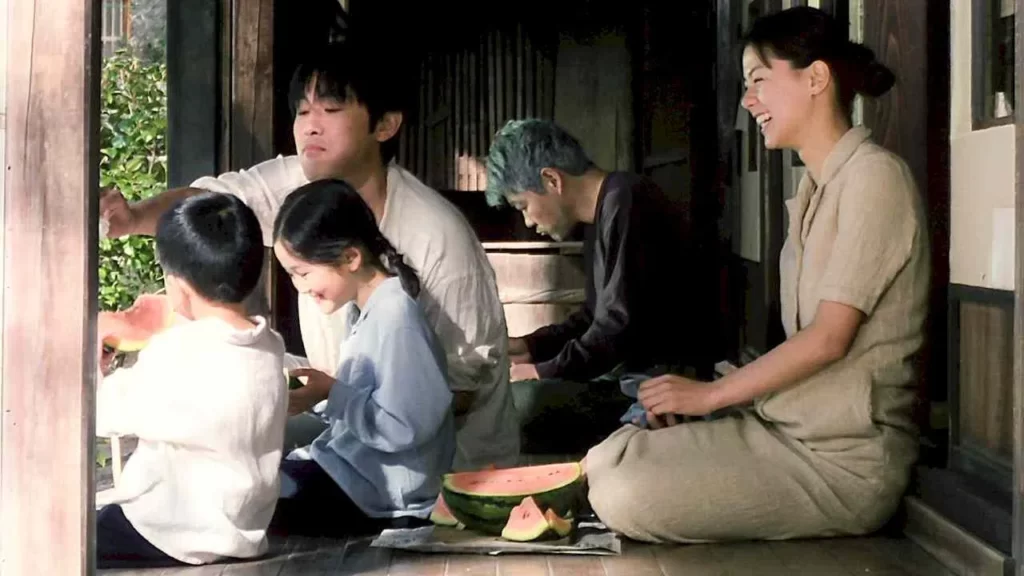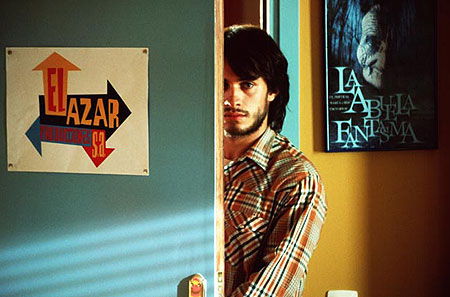BFI Player
BFI Player is the British Film Institute’s video on-demand streaming service, showing critically acclaimed classic, cult and archive films.
BFIPlayer has 2 sections, a subscription service, where you pay a monthly fee of £4.99 or an annual fee of £49, which obviously works out marginally cheaper, and a rental service, where you pay to watch the individual films. The rental service contains more recent films, including films which are on current release and the rental rates are a bit cheaper than other services showing current films. If you are a subscriber then you get a further discount on the price of renting films.
The subscription service has a section called Kermode Introduces, where the film is accompanied by the optional extra of a two or three minute introduction by the ubiquitous critic, so if you haven’t had enough of Kermode on every other review channel, you can get his views on a wealth of films there. They release a new Kermode Introduces film every week and there are now about 300 films on the service with introductions by the bequiffed one. Another interesting feature they have is “3 You Must See”, where they pick three films based on a director, an actor, a theme…there are some really terrific films and interesting combinations.
They say on their website that you can watch films “…at the touch of a button”, but dear me, if you click on the links that says “How do I watch films?” you are confronted with a wealth of gobbledegook. It boils down to this…if you have a Samsung Smart TV there is a BFIPlayer app you can install on your TV, if, like me, you have a non-Samsung smart tv, you load the internet browser on your tv and load their website https://player.bfi.org.uk
So perhaps not exactly at the click of a button, but the range of films on offer make this a must have streaming service if you are a lover of independent and international films.
I will pick two films, one from the Rental section and one from the Subscription service.
Subscription – Maborosi (1995) Dir: Hirokazu Kore-eda
Hirokazu Kore-eda has become a fixture on the International film scene and perhaps he is the one man saviour of Japanese cinema, one of the oldest cinema industries in the world, which had virtually disappeared from western screens during the 80’s and 90’s.

Kore-eda was a well known documentarian in Japan, but little known outside the country, but his move to fictional film making in the late 90’s caught the imagination of international film festivals and he has since become a titan of international cinema, often compared with the Japanese master Yasujirō Ozu, though Kore-eda himself sites Ken Loach as one of his foremost influences. Kore-eda’s rise has opened the door to other Japanese film makers to find an audience in the west.
Maborosi was his debut fictional film and was not released in the UK util a collection of Kore-eda’s films were released in 2019. Perhaps it is this film that created the comparisons with Ozo, filmed as it is , with the sort of largely static widescreen tableau that the master was known for. It did contain the seeds of his best films, dealing as it does with family, loss, secrets, humanity…and with mouth watering scenes of food being shared.
The film tells the story of Yumiko, happily married to her childhood sweetheart a jolly and self deprecating man, and with a little baby. Her life is turned upside down when her husband dies, killed by walking in front of a train. She is obviously devastated, but is dealt with appallingly by the authorities and her own mother. A few years later she is taken under the wing of a kindly neighbour who acts as a matchmaker, who introduces her to a young widower living in a remote coastal town with his daughter and she seems to find happiness. Then she is called back to her home village for her brother’s wedding and the grief at her first husband’s death once again overwhelms her. Why did he die? Was it suicide? Was it an accident…worse of all, is she the spirit of death, brining tragedy to those she loves.
But this synopsis fails miserably to convey the beauty, depth and profundity of the film. It is a film of astonishing beauty, which was made with only natural light, draws the viewer into its spiritual mood with one breathtaking shot after another, as the camera draws back to contemplate Yumiko from afar.
Also on the BFIplayer subscription service is Kore-eda’s wonderful and very different second film, After Life, which also got very little notice in the UK…but I will save that for another week.
Bad Education (2004) Pedro Almodovar

Since we are talking Titans of International Cinema, BFIplayer does have a collection of brilliant Pedro Almodovar films, and I want to give a shout out to Bad Education.
But how to summarise or analyse this labyrinthine film?
Well let’s try. A successful film maker (Enrique) is casting around for an idea for a new film, when he gets an unexpected visitor. A dishevelled young man who brings a story call The Visit to show him. Not the sort of thing Enrique would normally entertain, but the man claims to be Ignacio, his childhood friend from Catholic boarding school, who now prefers to go by the name Angel. Enrique is captivated and moved by the story which is based on the love affair they had as schoolboys, and how it was exploited by a corrupt priest.
But, it transpires, Ignacio had been killed in a car accident some years before, so who is Angel and how does he know such intimate details about Enrique?
That is as far as one dares go in terms of synopsis without being dragged into an inescapable vortex.
Suffice it to say that Gael Garcia Bernal is brilliant in the homme fatale role of this film noir. Not only does this ooze the mystery and suspense of Hitchcock, but Bernal’s Ignacio is Patricia Highsmith’s Ripley incarnate. Almodovar’s mix of straight, gay, transvestite and transexual relationships would have the heads of any of todays culture war idiots spinning out of control…but above all, this is a glorious love letter to Cinema!
…and all for only £2.95 on BFIplayer!